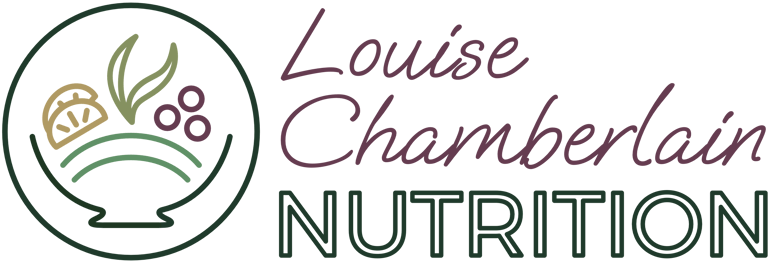Eating for Cognitive Performance
How to Nourish Your Teen for Exam Success
NUTRITION
Louise Chamberlain Nutrition
5/1/20253 min read


Exam season is here and, if you're the parent of a teenager, you can set them up for success by fuelling their brains and bodies with the right nutrition. Small, simple changes to their diet can make a big difference — not just to their memory and concentration but also to their energy levels, mood, and resilience under pressure.
Photo by Unseen Studio on Unsplash
Why Nutrition Matters for Exam Performance
The teenage brain is still developing and it's particularly sensitive to the nutrients it receives. During periods of intense mental activity - like studying for exams - the brain's demand for energy and micronutrients skyrockets.
Without the right fuel, your teen may experience brain fog, irritability, fatigue, poor memory, and difficulty concentrating. But when they're well-nourished, their brain can perform at its best, improving focus, processing speed, and emotional balance.
Balanced nutrition is the secret weapon in your teen's exam toolkit.
Key Nutrients for Brain Health
Here are some of the most important nutrients to support cognitive performance:
Omega-3 fatty acids – Critical for brain cell communication and memory. Found in oily fish like salmon, mackerel, and sardines. For non-fish eaters, flaxseeds, chia seeds, and walnuts are good options.
B Vitamins (especially B6, B12, and folate) – Help with energy production and brain function. Found in leafy greens, eggs, dairy, and poultry.
Iron – Essential for oxygen transport to the brain. Low iron can cause fatigue and difficulty concentrating. Good sources include lean red meat, spinach, and lentils.
Magnesium – Supports relaxation and helps combat stress. Found in leafy greens, nuts, seeds, and wholegrains.
Vitamin D – Important for mood and cognitive health. Sunlight is a major source, but oily fish and eggs help too.
Antioxidants – Help protect the brain from stress and inflammation. Think colourful fruits and vegetables like berries, peppers, tomatoes, and broccoli.
The Power of Smart Snacking
During revision, teens are often hungry and prone to grabbing quick, sugary snacks. These cause blood sugar spikes and crashes, leading to irritability and tiredness.
Help them choose smart snacks that sustain their energy and concentration, such as:
A handful of mixed nuts and seeds
Sliced apple with peanut butter
Greek yoghurt topped with seeds and berries
Vegetable sticks with hummus
Boiled eggs
Homemade energy balls (made from oats, nut butter, and dried fruits)
It’s helpful to have healthy, easy options within reach during study sessions, so it’s easier for them to make brain-boosting snack choices.
Building the Exam-Boosting Plate
Creating balanced meals doesn't need to be complicated. Aim to include:
A source of protein at every meal (chicken, eggs, beans, yoghurt) to sustain energy and support neurotransmitter production.
Wholegrain carbohydrates (oats, brown rice, wholemeal bread) to provide slow-release energy.
Plenty of fruits and vegetables for antioxidants, vitamins, and minerals.
Healthy fats (olive oil, avocado, nuts) to support brain cell health.
Plenty of hydration – water is vital for brain function.
What About Exam Day Itself?
A balanced breakfast sets up the brain for focus and stamina. Some easy exam-day breakfast ideas:
Porridge with berries, seeds, and a spoonful of nut butter
Wholegrain toast with peanut butter and a banana
Greek yoghurt with chia seeds, granola and fruit
An omelette with spinach, cheese and a slice of wholegrain toast
If nerves make breakfast difficult, a smoothie made with yoghurt, fruit, and oats is a good choice.
During long exams, teens might benefit from bringing a small snack (if allowed) like a banana or a handful of nuts to keep energy levels stable.
Eating for Sleep
Good nutrition supports good sleep, and good sleep supports learning and memory consolidation.
Encourage a regular sleep routine, and avoid heavy meals, caffeine, or lots of sugar close to bedtime. Light, calming evening snacks (like a banana or a few almonds) can help promote restful sleep.
Supporting your teen with smart nutrition during exam season is a practical way you can help, giving them the best foundation for their brain and body to thrive under pressure.
Small daily habits, like a nourishing breakfast, a steady supply of water and healthy snacks, balanced meals, and encouragement at the table, can add up to a big difference when it matters most.
Eat Together
Food is important but so is emotional support. Exam season can be a rollercoaster of emotions for teens, and it’s easy for them to put themselves under enormous pressure.
Mealtimes are a great opportunity to check in, offer encouragement, and remind them that their best is good enough. A warm, nourishing meal prepared with love is a way to make your teen feel supported.
Caffeine and Sugar – What Parents Should Know
Many teens turn to caffeine and energy drinks to power through their revision — but high caffeine can backfire, leading to anxiety, poor sleep, and energy crashes.
Encourage water and herbal teas as their main drinks. A small amount of caffeine, like a cup of tea or coffee in the morning, is fine for most older teens, but it’s best to avoid it after lunch. Six hours after consuming a caffeinated drink, the amount of caffeine in the body will only have reduced by around half, so it’s easy to see how drinking coffee in the afternoon can impact sleep.
As for sugar, occasional treats are fine — exam season is stressful enough without banning favourite foods! However, try to balance sugary treats with nourishing meals and snacks that provide more sustained energy.
Louise Chamberlain Nutrition © 2025. All rights reserved.


